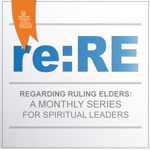What I saw made the whole museum visit worthwhile for me; full of grace and beauty—and it wasn’t part of any exhibit.
My husband and I went to the museum on a free day, which meant that it was crowded and lively! Many people milling around everywhere. The modern art displays, some of them interactive, were intriguing and appealing.
After a while, we moved to a large exhibit hall with lots of smaller pieces. In the midst of the art and the crowd, I saw an Asian American pair: a man accompanying a teenage boy who was developmentally disabled. The teenager was touching a video screen, up very close, and exploring it in his own way.
I watched the man as he related to the boy. He was patient, but also sweetly animated, attentive, and helpful. He laughed and smiled with the boy, so obviously full of love and delight in this teen from whom many of us would turn away. While not wanting to stare, I was mesmerized. And I thought, “This is the most beautiful place in the whole museum.”
That’s why I was so intrigued when, in a recent conversation, Wendy Farley, theologian and author of books on Christian spirituality, said that she has a spiritual practice of looking for beauty each day.
It started because she was working with the problem of suffering. And, after awhile, she sensed a calling to a different and better place. While she doesn’t deny the problem of suffering, she found that the practice of looking for beauty nourished her soul.
She taught a course at Emory University called “Contemplating Beauty,” and students would go out and see the campus with new eyes.
“I saw a bird.”
“A flower.”
“A lizard.”
Wendy points out that Scripture is full of God’s love for the created world. When we notice and love the created world, we are brought that much closer to God. And, as she says, “It feels good to love things.”
Wendy has noticed that her practice has morphed to include seeing beauty in unexpected places—including, for example, in the faces of tired parents caring for their children.
It makes me wonder if beauty is more present than I realize, if only I have eyes to see.
Wendy points out that the fruit of this practice reaches beyond our own personal experience. “When we nourish our hearts, our hearts are capable of more resilience. … To be spiritually and ethically alive in a difficult situation, you have to be nourished. You need to find things that make your heart strong, that give you joy.”
She continues, “We need to experience other truth, so that the difficult or wrong doesn’t take over our hearts.” Wendy believes that to look for beauty is a form of resistance, a kind of spiritual warfare, because “it is resistance to that which is an assault on the human spirit, allowing us to keep our spirits wholesome.”
I think of the line from a favorite hymn, “Come Thou Fount of every blessing, Tune my heart to sing Thy grace” (“Come Thou Fount,” Robert Robinson). Looking for beauty can be a way of tuning our hearts that we may praise and serve God more fully.
Maybe beauty doesn’t quite express your own longings right now. What is it that you are seeking? Hope? Courage? Comfort? Assurance? Sit for a few moments and see what comes. Or ask God to show you in the coming days what you most need. It does not have to be beauty—maybe for you it is something else.
At the end of each day, reflect and identify those moments for which you are seeking. At first this may be difficult, but keep trying. Most people find that, after awhile, they not only can name instances or examples later, but can name them in the moment.
The man and the teenager will never know what an incredible witness they were to me of extravagant love and delight. But they nourished my soul in those moments. Seeing their loving interaction fed my own longing for goodness in this world, for reassurance of God’s love for all of us. It nourished my soul, and gave me hope.
The Reverend Dr. Diana Nishita Cheifetz is a spiritual director, serving lay leaders and clergy in the San Francisco Bay area, the U.S.A., and internationally. Her website is www.spiritualdirectionforpastors.com.
For more about the information provided here, please contact Martha Miller at martha.miller@pcusa.org and browse the Ruling Elders website.

